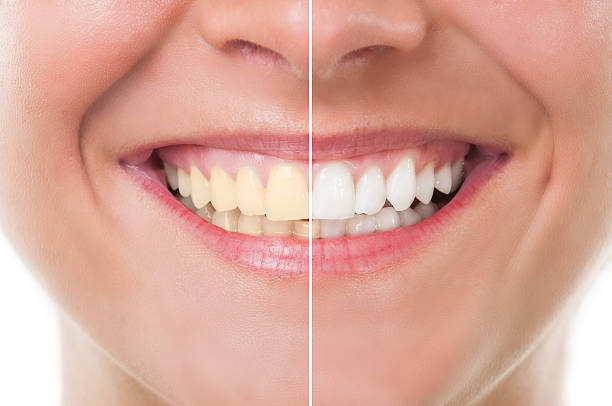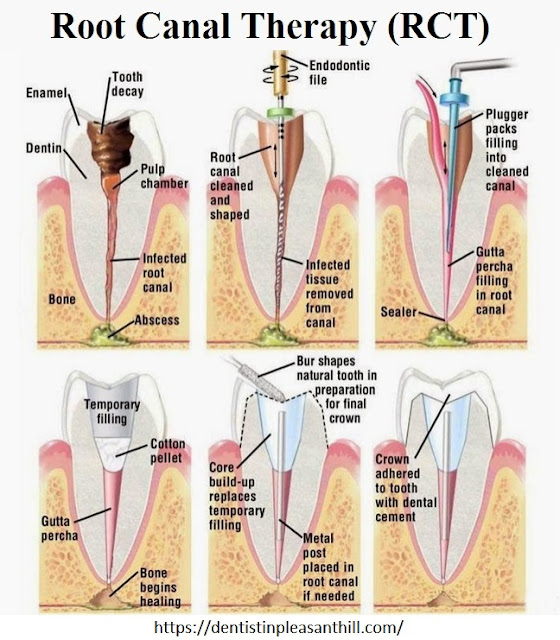Temporary Crowns vs. Permanent Crowns: Everything You Need to Know
Dental crowns play an essential role in restoring damaged or weakened teeth, enhancing both function and appearance. But when it comes to crowns, there are two main types: temporary and permanent. Each serves a specific purpose, and understanding their differences can help you make informed choices in your dental journey.
Whether you're facing a recent root canal, prepping for a permanent restoration, or seeking reliable dental care in Pleasant Hill, knowing what to expect from both temporary and permanent crowns can help you plan the next steps with confidence.
What Are Dental Crowns?
Custom-made to fit each patient, dental crowns are protective caps placed over compromised teeth to bring back their durability, function, and aesthetics. They're commonly used after root canal treatment, extensive decay, or fractures. With options like metal, porcelain, ceramic, and composite resin, dental crowns offer various benefits to meet the diverse needs of dental patients.
A temporary crown typically comes first, followed by a permanent tooth crown once the tooth has healed or the final crown is ready for placement. Let's explore the roles and differences of each type.
 |
Temporary Crowns vs. Permanent Crowns |
What Is a Temporary Crown?
Temporary crowns are short-term dental restorations placed over a tooth while waiting for a permanent crown to be made. These crowns serve as a temporary solution, protecting the tooth from damage and sensitivity during the transition period. Temporary crowns are usually crafted from acrylic or composite materials, which are less durable than the materials used in permanent crowns.
Key Features of Temporary Crowns
Protection for the Tooth: Temporary crowns shield the tooth from sensitivity, pain, and possible damage.
Short-Term Solution: Since they're made of less durable materials, temporary crowns are meant to be used only for a limited time.
Customized Fit: Though they are not as precisely crafted as permanent crowns, temporary crowns are still molded to fit your tooth comfortably and securely.
One common question is how long does a temporary crown last. Typically, temporary crowns are designed to last between two weeks to a few months, depending on individual circumstances. They are not meant for long-term use, so it's important to follow up with your dentist for the permanent crown placement as scheduled.
What Is a Permanent Crown?
Once your permanent crown is ready, it replaces the temporary crown, providing a long-lasting restoration that's more durable and natural-looking. Permanent crowns are created from high-quality materials, like porcelain or metal, and customized to match the natural color, shape, and size of your teeth, ensuring a cohesive smile.
Key Features of Permanent Crowns
Durability: Unlike temporary crowns, permanent crowns are crafted from strong, durable materials designed to last for many years with proper care.
Aesthetic Appeal: Permanent crowns are made to match the natural look and feel of your teeth, offering a lifelike appearance.
Precision Fit: Since they're custom-made, permanent crowns fit securely and comfortably, helping maintain the function and aesthetics of your smile.
Permanent crowns are designed for longevity and resilience, making them ideal for protecting teeth that have undergone root canal treatment or significant dental work. These crowns can last between 10 and 15 years or potentially much longer with proper maintenance.
Comparing Temporary and Permanent Crowns
When it comes to dental restorations, temporary and permanent crowns each have unique qualities that serve different purposes. Here's a breakdown of the primary differences:
Material: Temporary crowns are generally made from acrylic or composite resin, while permanent crowns are crafted from porcelain, ceramic, or metal, depending on the patient's needs. This difference in material directly impacts durability and longevity, with permanent crowns being much more resistant to wear and tear.
Durability: Due to their material, temporary crowns are less durable and more susceptible to damage. They are meant only for short-term use until the permanent crown is ready. In contrast, permanent crowns are designed to withstand the pressure of daily chewing and biting, providing a lasting solution.
Comfort and Fit: Temporary crowns provide a quick fit but may not be as comfortable or secure as permanent crowns. Permanent crowns are custom-made for an exact fit, which enhances comfort and functionality.
Appearance: Temporary crowns often don't blend in with natural teeth, as do permanent crowns. They may be a different color or texture, whereas permanent crowns are carefully designed to match the color and appearance of your surrounding teeth.
Cost: Temporary crowns are generally included in the overall cost of getting a permanent crown. However, if additional time is needed between appointments or if a replacement is necessary, there may be extra charges. Permanent crowns are more costly upfront due to the higher-quality materials and customization.
When to Contact a Dentist
Both temporary and permanent crowns require some care, but in rare cases, issues can arise, such as sensitivity, loosening, or discomfort. If you experience any of these issues, reach out to your dentist for an assessment. Regular visits for dental care in Pleasant Hill can help ensure that both your temporary and permanent crowns remain effective and comfortable.
Conclusion
Understanding the distinctions between temporary and permanent crowns can help you make more informed decisions about your dental care. Temporary crowns serve as a short-term solution, providing protection until your permanent crown is ready. On the other hand, permanent crowns offer a durable, aesthetic restoration designed to last for years. By following proper care guidelines and working with a trusted dentist, you can enjoy the full benefits of both types of crowns.
If you're in need of dental crown treatment or require follow-up after a root canal treatment, consult your dentist for guidance on the best approach for your situation. From temporary to permanent crowns, choosing the right options for your dental health can help you maintain a strong, healthy smile.


Comments
Post a Comment